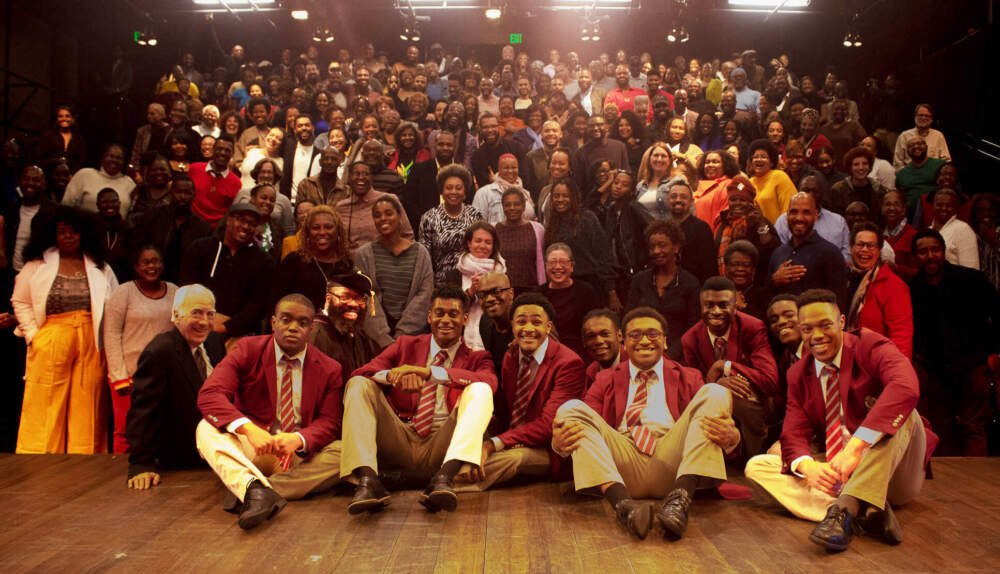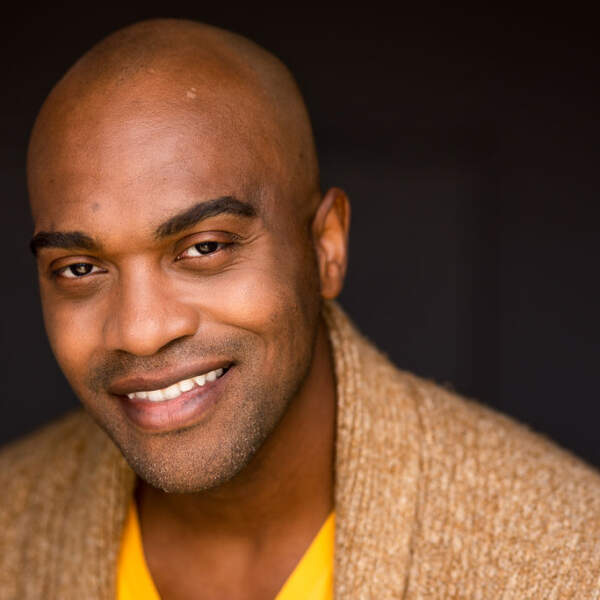Advertisement
Commentary
Black Out performances make Boston theater more inclusive — and vibrant

A British theater that produced American playwright Jeremy O. Harris’s “Slave Play” in London earlier this year took heat from a number of directions, including from U.K. Prime Minister Rishi Sunak, for programming a Black Out night where seats were reserved solely for audience members who are Black identifying. “The prime minister is a big supporter of the arts and he believes that the arts should be inclusive and open to everyone, particularly where those arts venues are in receipt of public funding,” a spokesperson for Sunak said. “[R]estricting audiences on the basis of race would be wrong and divisive.”
But despite the recent pushback, this is hardly a new idea. Harris (who was named director of Williamstown Theatre Festival’s new Creative Collective earlier this month) first introduced a similar event during the Broadway run of “Slave Play” in September 2019. It’s also not new in the U.K., where London theaters have held similar events during performances of Harris's play “Daddy”, and “Tambo & Bones” by playwright Dave Harris.
I’ve hosted Black Out performances in Boston with Front Porch Arts Collective and our theater partners, and I think they’re often misunderstood. The push to create cultural affinity spaces is not about exclusion. It’s about fostering inclusivity and ensuring all communities have opportunities to connect with the theatrical arts.

Black Out performances usually happen once during the course of a four- or five-week performance schedule. Those shows are taken off sale to the public and are accessible only with a code — which is distributed to Black organizations, previous Black Out attendees, and through community newsletters and social media groups. Anyone who isn’t Black identifying who walks up to the box office won’t be turned away. Instead, they’ll be informed about the Black Out experience and asked to consider another performance.
In the world of theater, the glaring lack of audience diversity is a persistent issue. As a Black theater artist and theatergoer, I often find myself in a sea of white faces, even at productions telling Black stories. At Front Porch, we appreciate our white patrons, but the racial discrepancy at most theaters underscores an urgent need for innovative approaches to engaging communities of color. An ArtsBoston report from a few years ago noted that 53% of Boston’s population is people of color, yet Boston's arts and culture audiences are 89% white. By curating theater environments where everyone in an audience shares a common cultural background or perspective, we remove barriers for hesitant audiences and foster a sense of belonging and deeper connections.
I experienced this myself a few years ago when I attended a performance of playwright Jez Butterworth’s “Jerusalem” in London. It was there that I realized the profound impact of cultural familiarity on an audience’s enjoyment. While deeply moved and inspired by the play and the performance by Mark Rylance — an Olympic athlete of acting — there were aspects that I didn't fully grasp because I’m not British. But witnessing the joy of a predominantly British audience highlighted how cultural resonance can enhance the experience for everyone.
Like school matinees, Black Out performances are opportunities for targeted engagement with a specific audience that doesn’t deprive others of the chance to see the production.
It's this level of connection and understanding that we aim to cultivate for Black audiences and artists. In a landscape where theater attendees are predominantly white, achieving this level of cultural affinity for Black audiences requires intentional effort. Unlike communities with longstanding ties to the theater, such as the British audience for “Jerusalem”, Black audiences and artists are often made to feel the theatrical space is not for them. A 2022 study on perceptions of Greater Boston arts organizations showed that 73% of Black/BIPOC Boston residents said that arts and culture organizations are important to them. But nearly 70% of those same residents believed systemic racism is present in local theaters. Black theatergoers reported feeling unwelcome — even judged — at performances. I’ve heard stories of Black colleagues being "shushed" or given disapproving glares if they laugh too loud or too long.
The concept of Black Out performances isn’t much different from student matinees, which are tailored for school groups outside the scheduled run of a show. Like school matinees, Black Out performances are opportunities for targeted engagement with a specific audience that don't deprive others of the chance to see the production.
Advertisement
I’m always moved by the feedback we get from audiences after Black Out performances. People tell us that being in the audience “felt like coming home.” They say they’ve never experienced theater “like that” and “felt comfortable and welcomed” — free to be their fullest selves in the space.
Front Porch Arts Collective offered a Black Out performance of the Pulitzer Prize-winning musical “A Strange Loop” in early May. On June 7, my colleagues and I get another chance to create a welcoming space during our co-production with Central Square Theater of the Tony-winning musical “Next to Normal,” which marks the first time in New England that Black actors play the central family.
By embracing new approaches and challenging norms, we pave the way for a more diverse and vibrant theater scene — one in which every audience member feels seen, heard and understood at any performance they choose.
